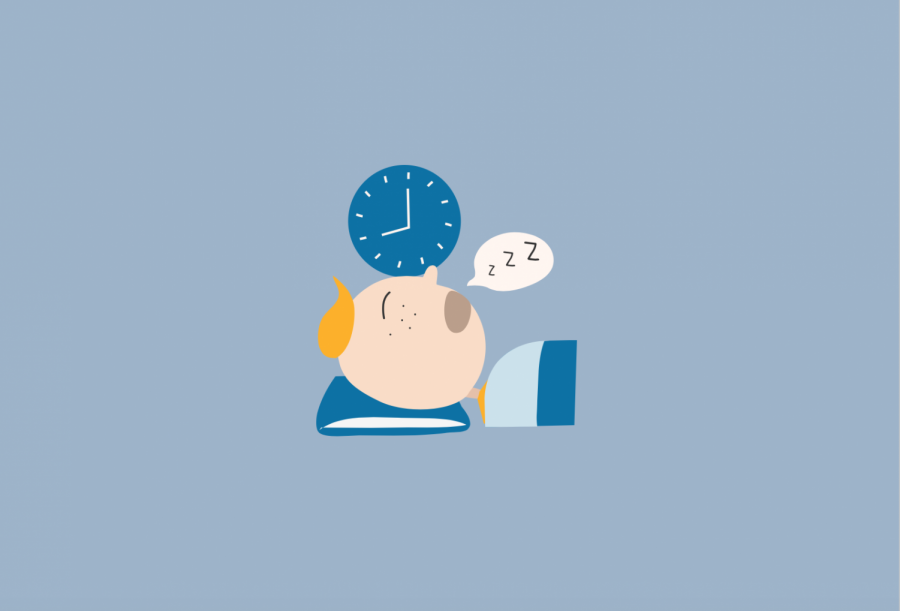School start time needs to change, high schoolers need sleep
Staff writer Karthik Yalala writes that high schoolers need more sleep and the early start time supports an unhealthy sleep schedule.
April 6, 2018
School starts too early for many people. Because school starts so early, many don’t get enough sleep. More sleep leads to fewer mistakes, and fewer mistakes lead to better grades.
Sleep is essential for a good day; people can work more efficiently with more sleep. If school started later, high school students would get more sleep, and this would lead to a more efficient day at school.
With all the work that is assigned for high school students, on top of other responsibilities, how are the students expected to get a good amount of sleep?
Think of all the responsibilities high students have to worry about. They have sports and extracurricular activities, jobs and chores at home. In addition, they have social lives, and they have to worry about their grades in school. If students want to perform at their highest level, they need eight to nine hours of sleep according to the Sleep Foundation.
Sleep deprivation is a chronic problem for high school students. According to the Center for Advanced Health (CFAH), ninety-two percent of high school students are sleep deprived. Sleep deprivation is a gateway to numerous health problems like heart disease, high blood pressure, and diabetes. On the more immediate front, the immune system could become weaker because of a lack of sleep.
Sleep deprivation can also lead to car accidents. According to the National Sleep Foundation, 100,000 car crashes every year occur because of lack of sleep. Because many students drive themselves to school, other commuters are potentially at risk of getting in accidents due to the exhaustion of teenage drivers.
Further, if students got more sleep, they would have a better attitude toward school–especially toward first period. Since the beginning of seventh grade, I have observed that the first period of every school day is considerably more subdued than the periods that follow. My classmates are often groggy, uncommunicative, and even unresponsive; this results in a slow and unproductive forty-five minutes, and it must be extremely frustrating for the teacher assigned to that time-slot. One side-effect of this situation is that first period classes often struggle to make meaningful connections with first period teachers, and an opportunity for a mentor-student relationship building is lost. These students would be more respectful to their teachers and peers and productive if they got more sleep. Certainly the data seems to point toward this: research by June J. Pilcher and Allen I. Huffcutt from the Department of Physiology from Bradley University shows that more sleep leads to fewer mistakes and a better attitude. They had a sample size of 1,923 people.
More sleep could also increase long term student academic performance, improving collegiate prospects. According to Kyla Wahlstrom, director of the Center for Applied Research and Educational Improvement at the University of Minnesota, more sleep leads to better grades. Wahlstrom tracked more than 9,000 students, in Minnesota, Colorado, and Wyoming. When school started at 8:35am or later for those students, grades rose.
Sure, if the schools’ start time was pushed back, there would not be enough time for extracurriculars and sports. Nor could the remedy just be to lengthen the school day because then the whole sleep-deprived cycle would shift forward by an hour. In order to allow students to get that essential extra hour of sleep, there would have to be a compromise concerning extra-curricular expectations and/or homework volume. But it would allow the time that the students have to be more productive as the research shows–quality over quantity. Most importantly, by creating a schedule that gives teenagers that extra hour of sleep for the entirety of high school, administration would likely be adding months and even years to this generation’s lifespan.










